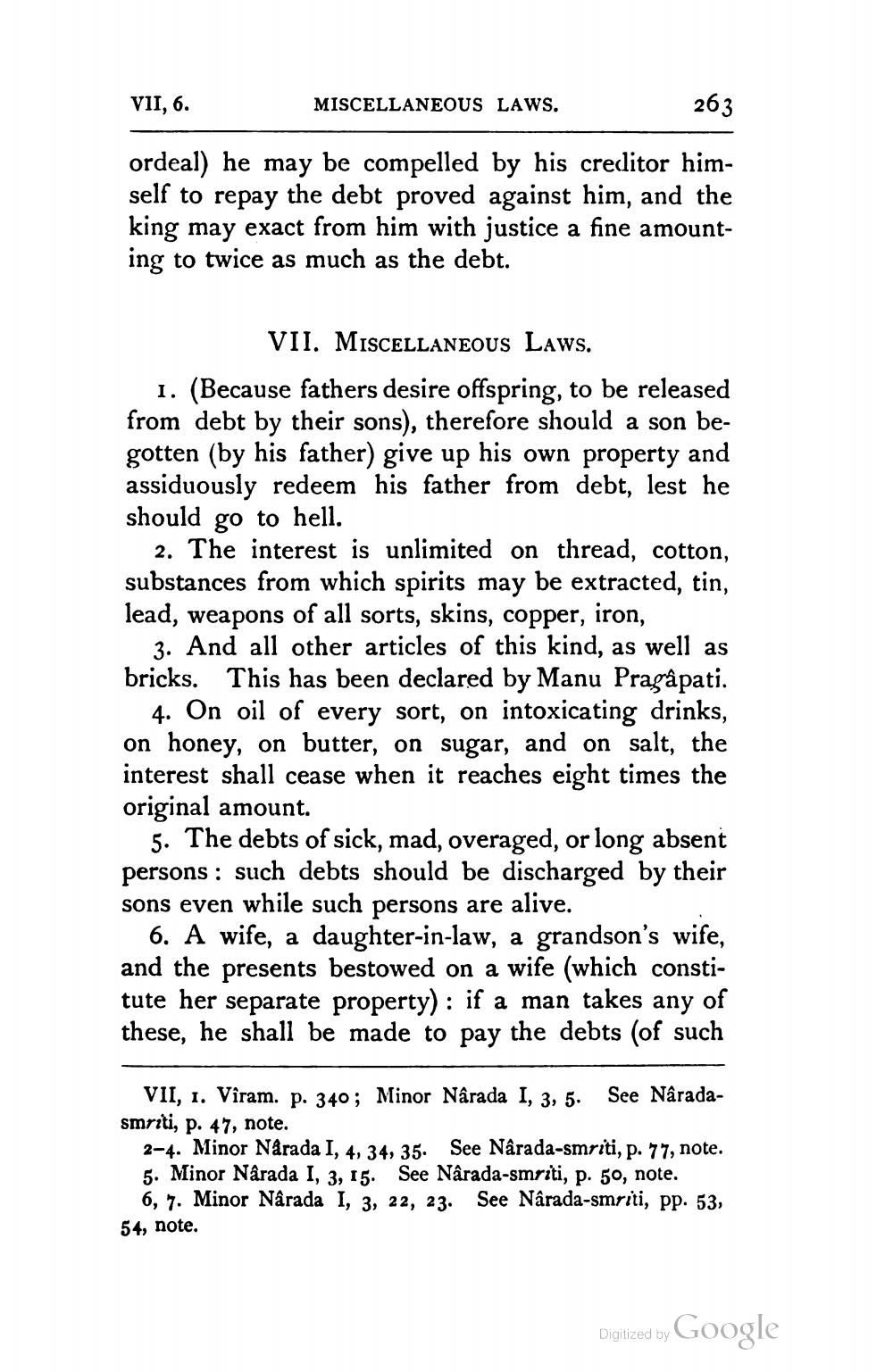________________
VII, 6.
MISCELLANEOUS LAWS.
263
ordeal) he may be compelled by his creditor himself to repay the debt proved against him, and the king may exact from him with justice a fine amounting to twice as much as the debt.
VII. MISCELLANEOUS Laws. 1. (Because fathers desire offspring, to be released from debt by their sons), therefore should a son begotten (by his father) give up his own property and assiduously redeem his father from debt, lest he should go to hell.
2. The interest is unlimited on thread, cotton, substances from which spirits may be extracted, tin, lead, weapons of all sorts, skins, copper, iron,
3. And all other articles of this kind, as well as bricks. This has been declared by Manu Pragàpati.
4. On oil of every sort, on intoxicating drinks, on honey, on butter, on sugar, and on salt, the interest shall cease when it reaches eight times the original amount.
5. The debts of sick, mad, overaged, or long absent persons : such debts should be discharged by their sons even while such persons are alive.
6. A wife, a daughter-in-law, a grandson's wife, and the presents bestowed on a wife (which constitute her separate property): if a man takes any of these, he shall be made to pay the debts (of such
VII, 1. Vîram. p. 340; Minor Narada I, 3, 5. See Nâradasmriti, p. 47, note.
2-4. Minor Narada I, 4, 34, 35. See Nârada-smriti, p. 77, note. 5. Minor Narada I, 3, 15. See Narada-smriti, p. 50, note.
6, 7. Minor Narada I, 3, 22, 23. See Narada-smriti, pp. 53, 54, note.
Digitized by Google




